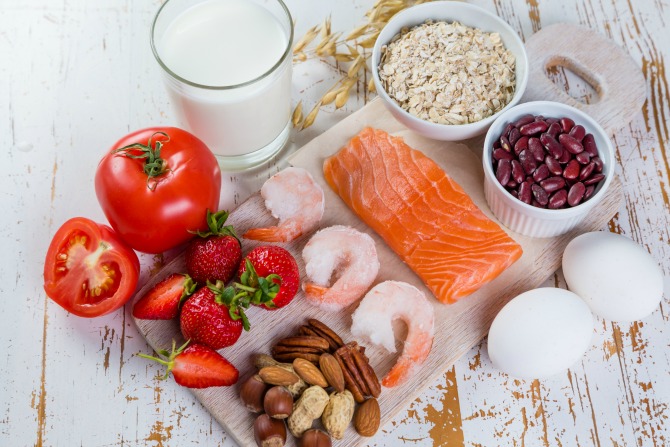Food intolerance or allergy?

Posted on
Do you get any of these gut symptoms: bloating, constipation, distention, wind, pain, discomfort?
Chances are, you may have a food intolerance: an extremely common condition experienced by many different people in lots of different ways.
Food intolerances and food allergies are NOT the same
Don’t confuse food intolerances with food allergies. They are quite different. Food intolerances are wide and varied, and besides causing you discomfort and decreasing your quality of life, they don’t affect your health. Below are the main differences between a food intolerance and a food allergy.
| Intolerance | Allergy |
| Does not involve an immune response | Triggers an immune reaction |
| Not life threatening | Can be life-threatening |
| Often dose dependant | Usually not dose dependent |
| Generally, just effects the digestive tract | Can affect all organ systems |
| Higher prevalence | Lower prevalence |
| Reaction caused by a food carbohydrate or chemical | Reaction caused by a food protein |
| Reactions may be immediate but more likely to take 12-24 hours to develop | Reaction is immediate after consumption or contact with food |
| Symptoms:
· Diarrhoea · Bloating/wind · Distention/discomfort · Constipation · Red/itchy skin · Headache/migraine |
Symptoms:
· Itching, burning, swelling · Runny nose · Skin rash · Hives · Vomiting/nausea · Breathing difficulties: wheezing |
The best way to describe the difference between a food allergy and food intolerance is to think about the different people who can’t drink milk.
Some people can’t drink milk because they are intolerant to the natural sugar (carbohydrate) in milk called lactose. They lack a sufficient amount of the enzyme lactase to break down the lactose and digest it. As such, lactose remains undigested in the large intestine causing bloating, pain, and diarrhea.
Some people can’t drink milk because they are allergic to the protein portion of milk. The reaction is caused by the immune system being activated by the presence of the protein in the gastrointestinal tract and, depending on the severity of the allergy, people experience a range of different reactions from mild to severe.
The difference between the two examples above makes a big difference in how the individual manages their intake of milk. A person with lactose intolerance can happily consume lactose-free milk or just consume small amounts of milk at a time and manage their symptoms that way. A person with a milk protein allergy needs to find a suitable milk replacement in consultation with a qualified dietitian.
What causes food intolerances?
- The absence of an enzyme needed to fully digest a food (for example a lack of the enzyme lactase to digest the milk sugar lactose).
- Irritable bowel syndrome (IBS) – this is a common diagnosis of unclear food intolerances, most likely caused by a hypersensitivity to gases produced by bacteria in the gut.
- Sensitivity to food chemicals (natural and added).
- Recurring stress or psychological factors (the digestive tract is highly susceptible to stress and your psychological state).
Next week I’ll go over some common food intolerances, and what to do if you suspect that you have one. If you’re ever confused, seeing a qualified nutrition professional is the best place to start!


Leave a Reply
You must be logged in to post a comment.